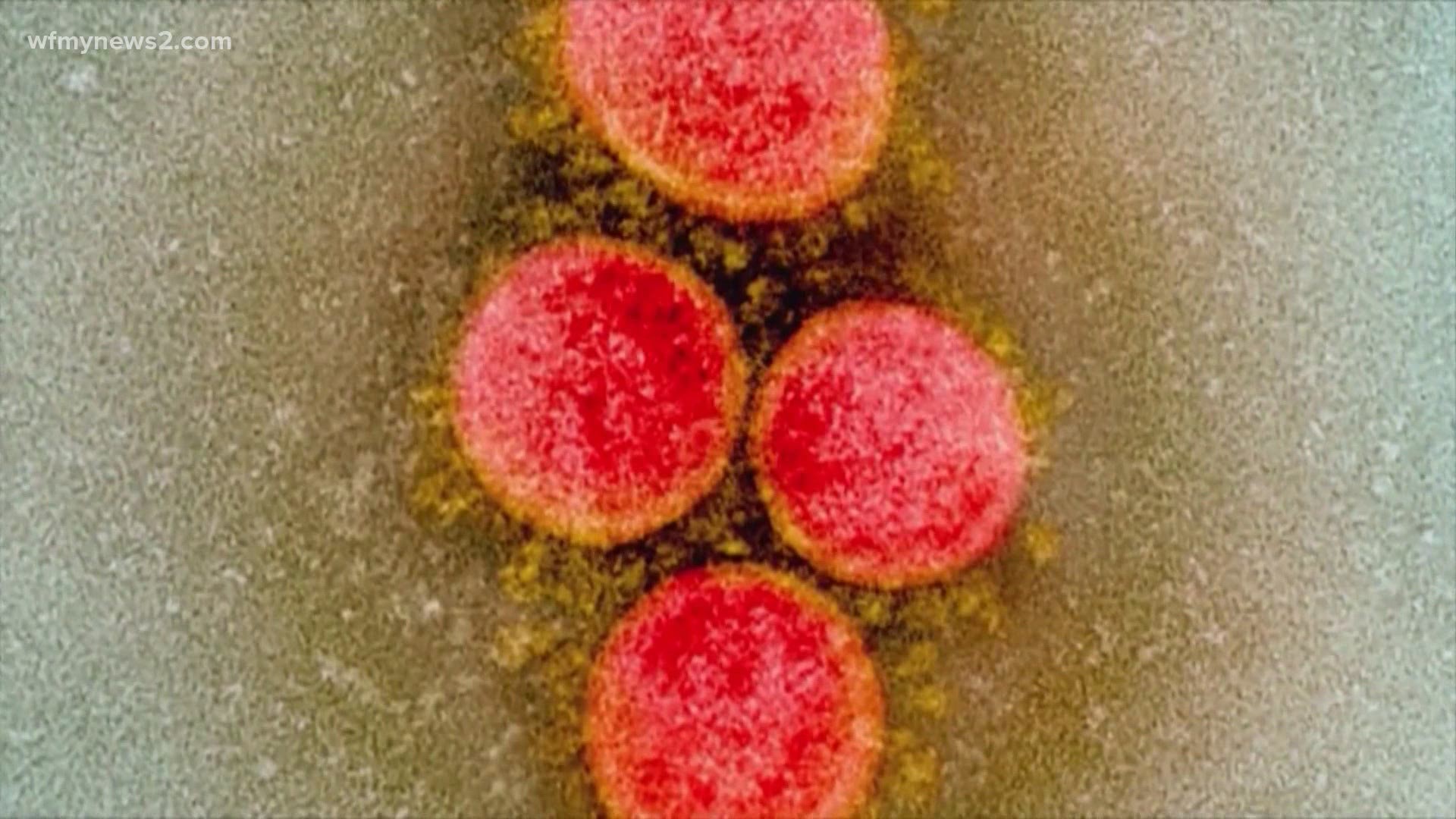GREENSBORO, N.C. — There is a lot of information swirling about the Delta variant of the coronavirus. It's said to be responsible for 20% of all new COVID-19 infections in the United States. Dr. Cynthia B. Snider, an infectious disease expert with Cone Health answered some commonly-asked questions about the mutation.
If you are fully vaccinated, can you get the Delta variant?
"We are seeing folks who are fully vaccinated getting the virus, getting COVID-19, however, it still appears to be a mild disease and that’s what we anticipate for the vaccine," Dr. Snider said. "Our main concern are those who are unvaccinated. We know that this Delta variant is more infectious and the urgency that we had to get vaccines back earlier this year, we should still have that same urgency for those now who are unvaccinated."
How is the Delta variant different?
"I think the main concern is in the past we were worried about how it would overload our hospital systems and we are a little bit in a sweet spot right now in North Carolina and other states where really we’ve had fewer hospitalizations, fewer cases but at the same time people are letting their guard down," Dr. Snider said.
Will the Delta variant be the main strain of COVID-19?
"We anticipate that these cases may be the predominant virus in North Carolina - I don’t think we’re there yet but in a couple of weeks, it's likely."
Why do people need to get vaccinated if they can still get the virus?
"Some protection is better than no protection and even folks that have had COVID in the past, they think they have natural immunity and ask, 'Do I need to get vaccinated?' the answer is still yes," Dr. Snider said.
The vaccine doesn't prevent us from getting the virus, does it protect us from serious symptoms?
"Yes, and that’s the key thing, nobody wants to be hospitalized," Dr. Snider said.
What about protecting kids who can't get vaccinated and can't wear a mask - how can we keep them safe?
"The best protection is really the parents and the family members who can get vaccinated - they should get vaccinated," Dr. Snider said. "When you think of activities that are safe, you know, it’s stuff that’s outdoors is considered safe. If children are going to camp and congregating indoors, it’s super important that we continue to answer those daily screening tests questions accordingly, and then if anybody is sick, you know, or even some people who discount seasonal allergies right now, I still think it’s better to get tested."
Do you think we will need COVID-19 booster shots?
"I feel like that’s the million-dollar question, I probably get asked that a good 10 times a day and it’s hard to tell," Dr. Snider said. "I think every day there are new studies that are showing the durability of the vaccine. I think that patients who are immunocompromised, either by taking chemotherapy or may have had an organ transplant, we know that their immune response to the vaccine isn’t as great as somebody who is immunocompetent, so there’s a chance that subgroups may need a booster."

